
Sialkot: The Historical Heartbeat of Pakistan
Sialkot, a city steeped in history and culture, offers a rich tapestry of experiences for the discerning traveler. Nestled in the northeastern region of Pakistan, Sialkot is famed for its vibrant industries, producing everything from sports goods to surgical instruments. However, beyond its industrial prowess lies a city brimming with historical landmarks and cultural heritage, waiting to be explored. Begin your journey with a visit to the ancient Sialkot Fort, a relic from the city's storied past. This fort has witnessed millennia of history, from Alexander the Great to the Mughal emperors. Nearby, you can find the bustling streets of the city's commercial heart, where traditional bazaars offer a sensory overload of sights, sounds, and smells. Here, craftsmen still practice age-old techniques, producing handmade goods that make for perfect souvenirs. A short drive away lies the shrine of the famous poet and philosopher Allama Iqbal, a symbol of the city's intellectual heritage. The lush Iqbal Park surrounding the shrine provides a serene escape from the urban hustle. For those interested in religious history, the city's numerous mosques, churches, and temples offer a glimpse into its diverse spiritual landscape. Sialkot's culinary scene is equally diverse and vibrant. From street food vendors serving delectable samosas and chaat to fine dining restaurants offering traditional Pakistani cuisine, the city's food culture is sure to delight. Don't forget to try the local specialty, 'Sialkoti Pulao,' a flavorful rice dish that is a must-try for any visitor. With its blend of history, culture, and modernity, Sialkot promises an unforgettable experience for all who visit.
Local tips in Sialkot
- Visit the Sialkot Fort early in the morning to avoid crowds and enjoy the serene atmosphere.
- Explore the local bazaars for unique handmade goods and souvenirs.
- Try the local specialty, Sialkoti Pulao, at a traditional restaurant.
- Carry cash, as many local vendors do not accept credit cards.
- Dress modestly, especially when visiting religious sites.
Sialkot: The Historical Heartbeat of Pakistan
Sialkot, a city steeped in history and culture, offers a rich tapestry of experiences for the discerning traveler. Nestled in the northeastern region of Pakistan, Sialkot is famed for its vibrant industries, producing everything from sports goods to surgical instruments. However, beyond its industrial prowess lies a city brimming with historical landmarks and cultural heritage, waiting to be explored. Begin your journey with a visit to the ancient Sialkot Fort, a relic from the city's storied past. This fort has witnessed millennia of history, from Alexander the Great to the Mughal emperors. Nearby, you can find the bustling streets of the city's commercial heart, where traditional bazaars offer a sensory overload of sights, sounds, and smells. Here, craftsmen still practice age-old techniques, producing handmade goods that make for perfect souvenirs. A short drive away lies the shrine of the famous poet and philosopher Allama Iqbal, a symbol of the city's intellectual heritage. The lush Iqbal Park surrounding the shrine provides a serene escape from the urban hustle. For those interested in religious history, the city's numerous mosques, churches, and temples offer a glimpse into its diverse spiritual landscape. Sialkot's culinary scene is equally diverse and vibrant. From street food vendors serving delectable samosas and chaat to fine dining restaurants offering traditional Pakistani cuisine, the city's food culture is sure to delight. Don't forget to try the local specialty, 'Sialkoti Pulao,' a flavorful rice dish that is a must-try for any visitor. With its blend of history, culture, and modernity, Sialkot promises an unforgettable experience for all who visit.
When is the best time to go to Sialkot?
Iconic landmarks you can’t miss
Sialkot Clock Tower
Explore the Sialkot Clock Tower, a historic landmark in Pakistan that embodies the rich cultural heritage and vibrant community spirit of Sialkot.
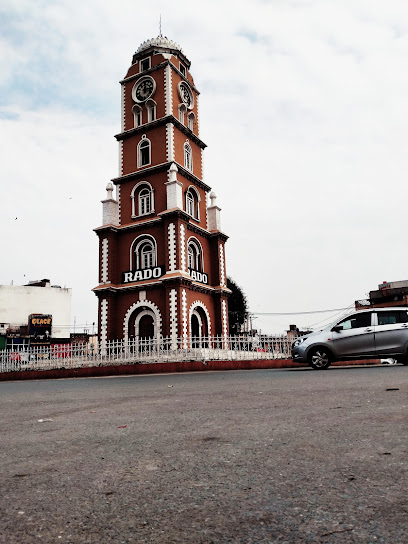
Allah Malak Family Restaurant
Experience the best of traditional Pakistani cuisine at Allah Malak Family Restaurant in Sialkot, where every meal is a celebration of flavor.
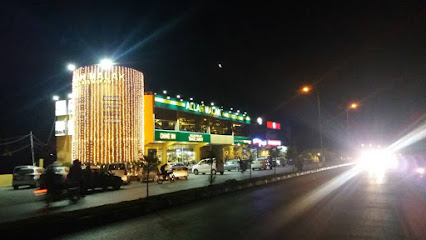
Fatima Jinnah Garrison Park
Discover the lush greenery and vibrant atmosphere of Fatima Jinnah Garrison Park in Sialkot, a perfect retreat for families and nature lovers.
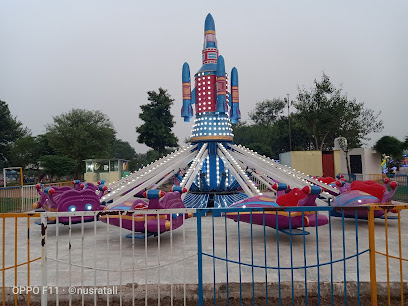
Sialkot Fort
Explore Sialkot Fort, a historical gem showcasing stunning architecture and breathtaking views, perfect for history enthusiasts and travelers alike.
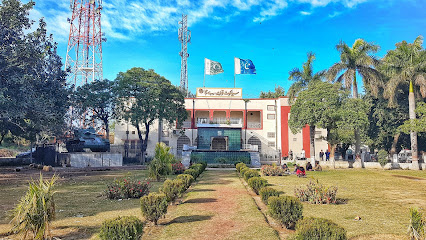
Gulshan-e-Iqbal Park
Discover the lush beauty and recreational delights of Gulshan-e-Iqbal Park in Sialkot, a perfect escape for nature lovers and families.
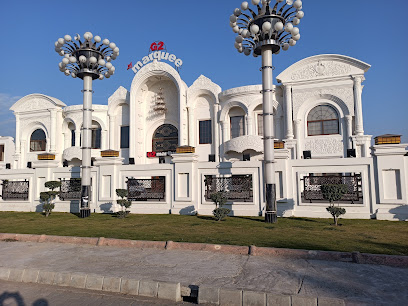
MEI KONG Sialkot
Discover the vibrant flavors of Asian cuisine at Mei Kong Sialkot, a culinary gem in the heart of Punjab.
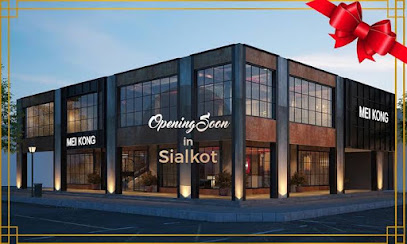
General Bus Stand Sialkot
Experience the bustling energy of Sialkot at the General Bus Stand, your gateway to local culture and delicious street food.
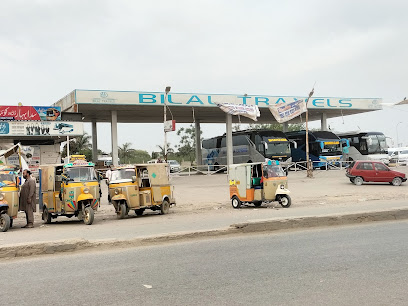
Hotel Taj Palace
Discover luxury and comfort at Hotel Taj Palace in Sialkot, a perfect blend of traditional hospitality and modern amenities for every traveler.

Allah Malak Restaurant
Discover authentic Pakistani flavors at Allah Malak Restaurant in Sialkot, where every meal is a celebration of taste and tradition.
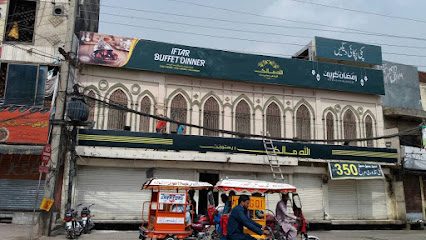
Silver Spoon
Experience the vibrant flavors of Sialkot at Silver Spoon, where traditional meets contemporary in a delightful dining setting.
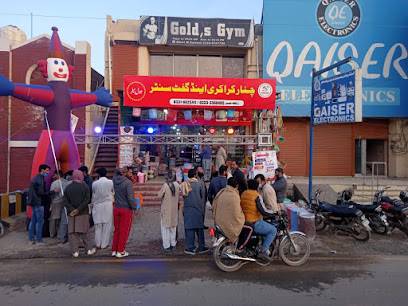
The Heritage Club
Discover the joy of dining and play at The Heritage Club in Sialkot, where family fun meets culinary excellence in a vibrant atmosphere.
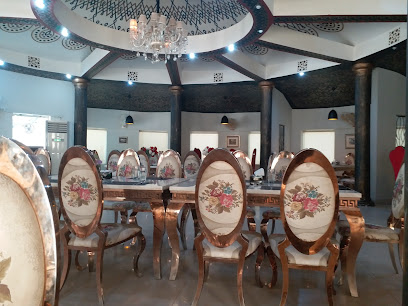
Grandiose The Family Restaurant
Experience the rich flavors of Pakistan at Grandiose The Family Restaurant, a family-friendly dining destination in Sialkot, perfect for food lovers.
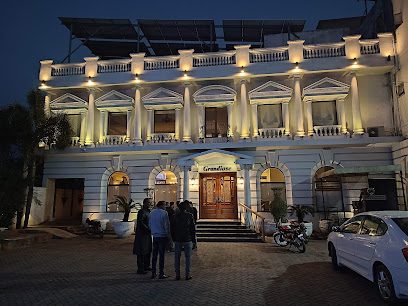
Iqbal House
Explore Iqbal House, a historical site in Sialkot celebrating the legacy of Allama Muhammad Iqbal, a cornerstone of Pakistan's cultural identity.
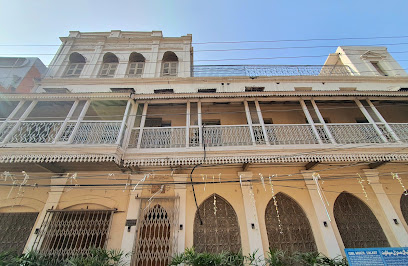
Boissons Cafe
Discover the flavors of Sialkot at Boissons Cafe, where delicious cakes, coffee, and fast food await in a cozy atmosphere.
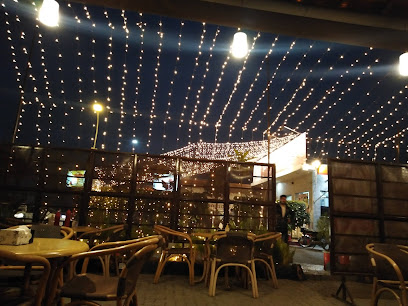
Qila
Discover tranquility in Qila, Sialkot's vibrant community garden, where nature meets culture in a serene setting.
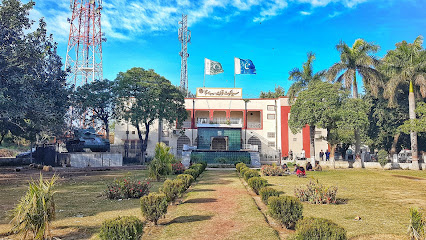
Unmissable attractions to see
Sialkot Clock Tower
Discover the rich history and vibrant culture at Sialkot Clock Tower, a must-see landmark in the heart of Sialkot, Pakistan.
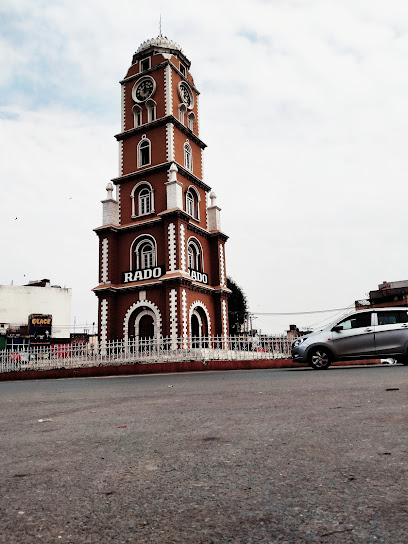
Fatima Jinnah Garrison Park
Explore the lush landscapes and family-friendly ambiance of Fatima Jinnah Garrison Park in Sialkot - a green oasis for relaxation and recreation.
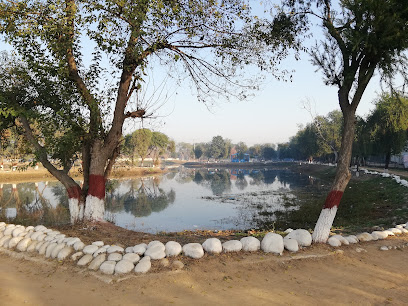
Sindbad Fantasy Land
Experience endless fun and excitement at Sindbad Fantasy Land, Sialkot's premier amusement park, perfect for family adventures and thrilling rides.
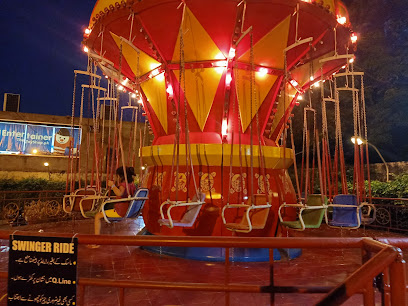
Sialkot Fort
Discover the historical marvel of Sialkot Fort, a majestic fortress that embodies the cultural heritage of Punjab, Pakistan.
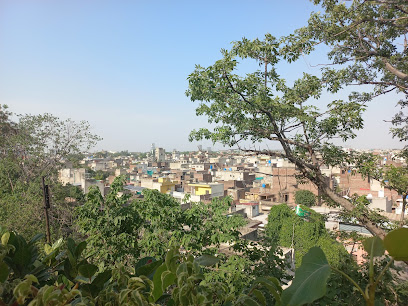
Gulshan-e-Iqbal Park
Explore the lush greenery and serene atmosphere of Gulshan-e-Iqbal Park, a tranquil retreat in the bustling heart of Sialkot, Pakistan.
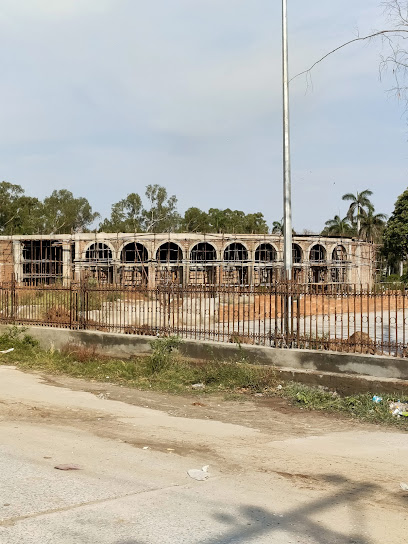
Iqbal House
Explore Iqbal House in Sialkot: A tribute to Allama Iqbal, showcasing Pakistani heritage, poetry, and history amidst stunning gardens.
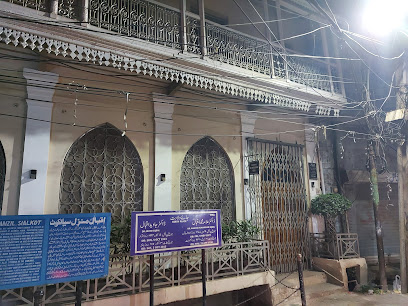
Qila
Explore Qila in Sialkot: A tranquil community garden perfect for nature lovers and those seeking a peaceful escape in Pakistan.
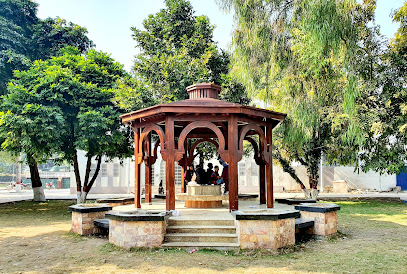
CB Family Park
Explore the beauty and tranquility of CB Family Park in Sialkot, a perfect retreat for families and nature lovers.
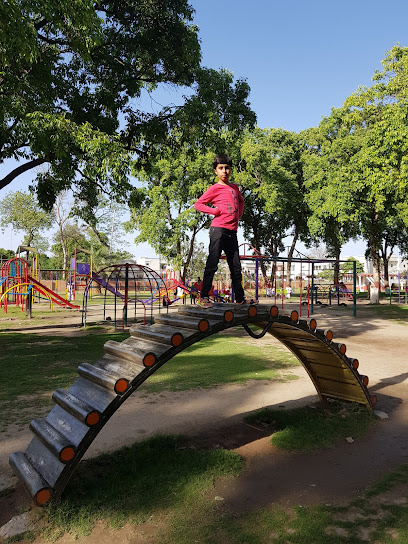
Shahabuddeen Jublee Park
Explore the serene beauty of Shahabuddeen Jublee Park in Sialkot, a perfect blend of nature, relaxation, and family fun.
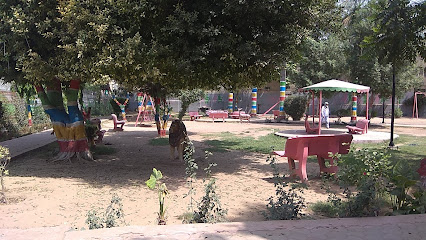
Khaybane Iqbal
Discover tranquility at Khaybane Iqbal, Sialkot's scenic park, perfect for relaxation and family outings amidst nature's beauty.
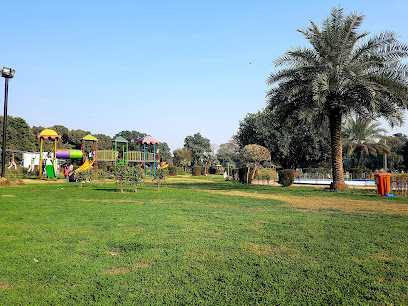
Garrison Amusement Park
Experience thrill and joy at Garrison Amusement Park in Sialkot, a perfect family-friendly destination filled with rides and lush green spaces.
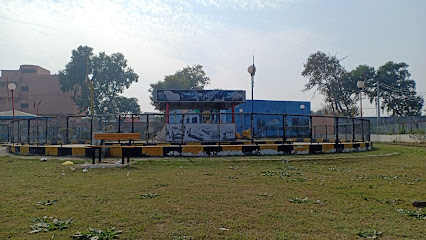
Citi Housing Society Park
Discover the charm of Citi Housing Society Park in Sialkot, a picturesque theme park perfect for families seeking fun and relaxation in nature.
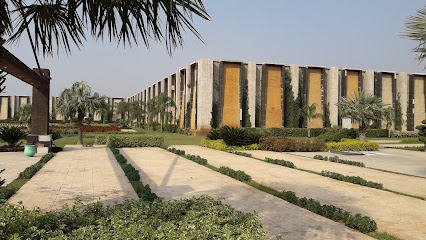
Boys Park
Discover Boys Park in Sialkot: A tranquil escape featuring lush landscapes, vibrant flowers, and serene walking paths perfect for relaxation and family outings.
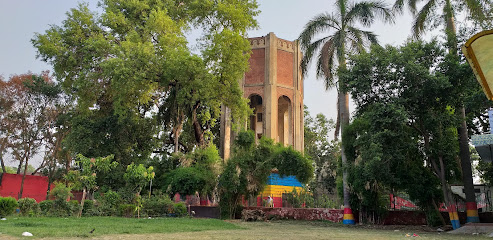
Green Apple Mini Zoo,Sialkot
Explore the wonders of wildlife at Green Apple Mini Zoo in Sialkot, a family-friendly destination for animal lovers and adventure seekers.
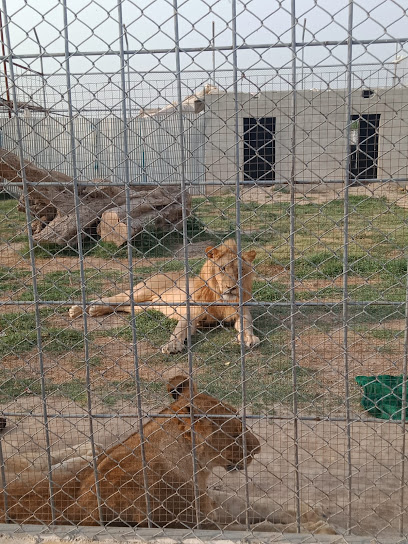
Abdul Hakeem Ladies Park
Discover tranquility and nature at Abdul Hakeem Ladies Park, a serene escape in Sialkot, perfect for relaxation and family outings.
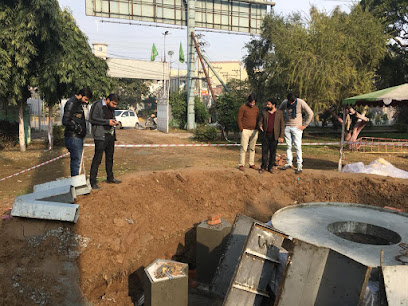
Essential places to dine
Allah Malak Family Restaurant
Discover the authentic taste of Pakistani cuisine at Allah Malak Family Restaurant in Sialkot - where tradition meets modern dining.
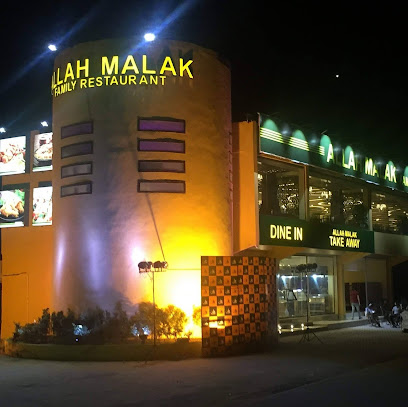
Grill n Thrill
Experience mouthwatering barbecue delights at Grill n Thrill in Sialkot's Cantonment Plaza - where flavor meets tradition.
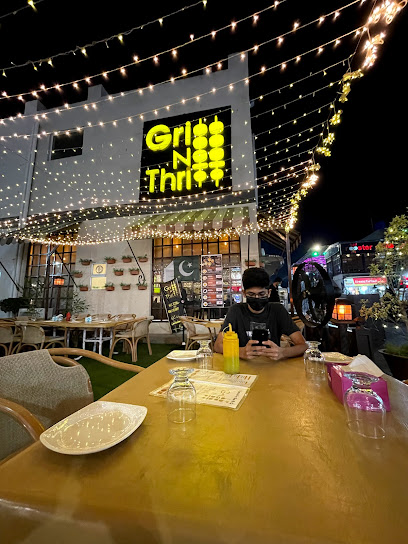
Mazzeo
Discover the vibrant flavors at Mazzeo in Sialkot - where every slice tells a story!
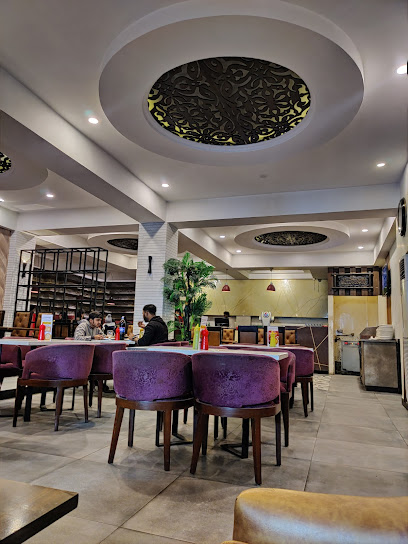
MEI KONG Sialkot
Experience authentic Asian cuisine at MEI KONG Sialkot – where flavor meets tradition in a vibrant setting.
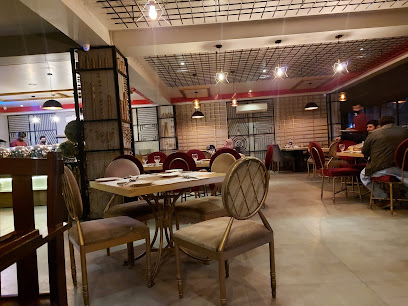
Frangoz Cafe
Experience exceptional dining at Frangoz Cafe in Sialkot - where local flavors meet modern culinary artistry.
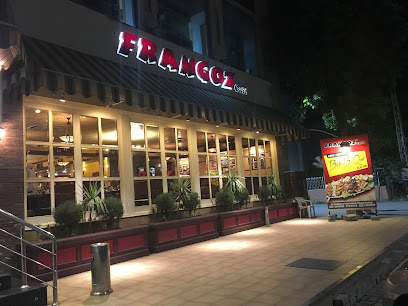
Allah Malak Restaurant
Experience authentic Pakistani cuisine at Allah Malak Restaurant in Sialkot - where flavor meets tradition in every dish.
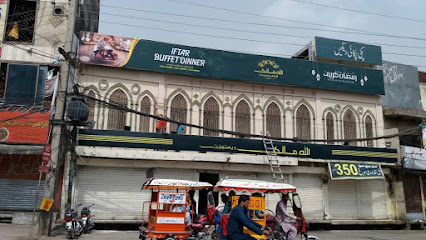
Silver Spoon
Experience authentic Pakistani cuisine at Silver Spoon in Sialkot—where every dish tells a story of rich flavors and traditions.
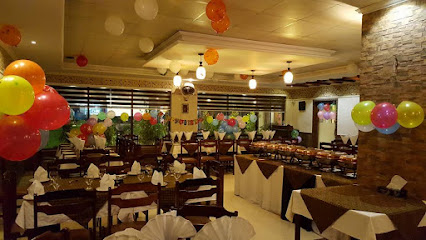
The Heritage Club
Discover family fun at The Heritage Club in Sialkot – where delicious dining meets exciting entertainment for all ages.
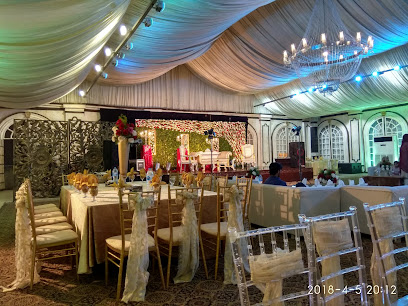
Yorkshire Restaurant
Discover delightful flavors at Yorkshire Restaurant in Sialkot - where traditional meets contemporary dining.
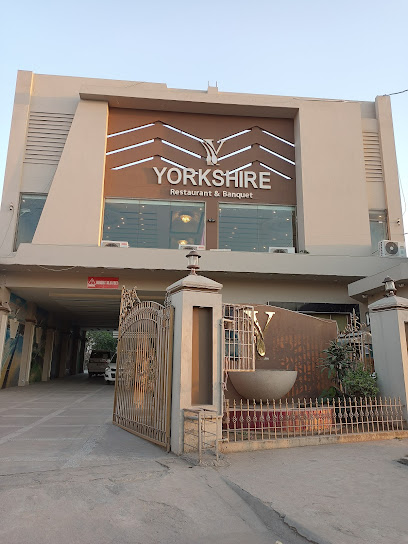
Grandiose The Family Restaurant
Experience authentic flavors at Grandiose The Family Restaurant in Sialkot - where every meal feels like home!
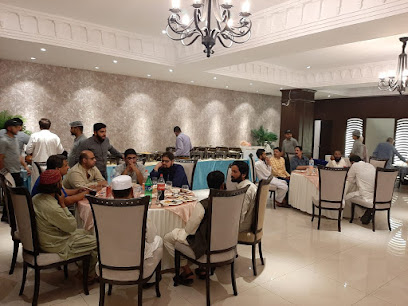
Frangoz Fried Chicken and Pizza
Experience culinary bliss at Frangoz Fried Chicken and Pizza in Sialkot—where delicious fried chicken meets mouth-watering pizza.
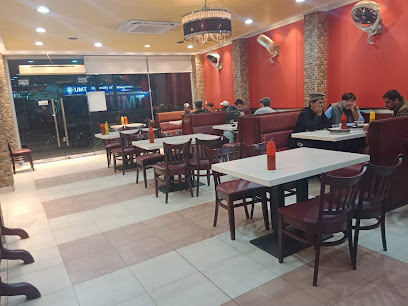
Chicken Cottage sialkot
Experience delicious fried chicken at Chicken Cottage Sialkot – where flavor meets comfort in every bite.
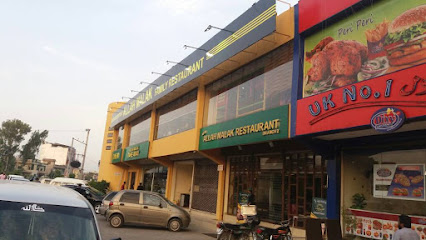
G.A Family Restaurant
Experience the best of Pakistani cuisine at G.A Family Restaurant in Sialkot - where flavor meets hospitality.
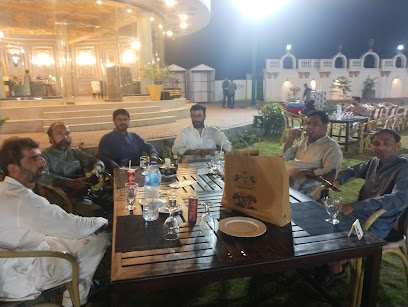
Papa Johns Pizza
Discover delicious pizzas made with fresh ingredients at Papa John's Pizza in Sialkot - perfect for dining in or takeout!
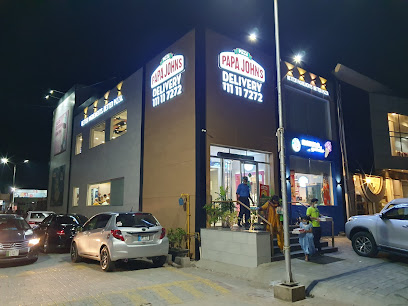
Grace Family Restaurant,گریس فیملی ریسٹورینٹ
Experience delightful family-friendly dining at Grace Family Restaurant in Sialkot, where authentic flavors meet warm hospitality.
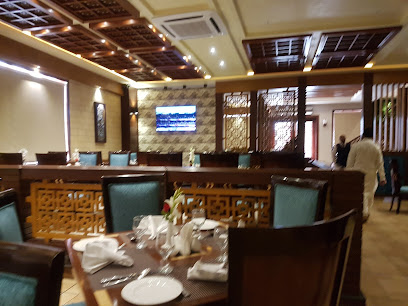
Markets, malls and hidden boutiques
Brands Village Sialkot,برینڈز ویلیج،سیالکوٹ
Discover the vibrant shopping and dining experience at Brands Village Sialkot, blending modernity with local charm for an unforgettable visit.
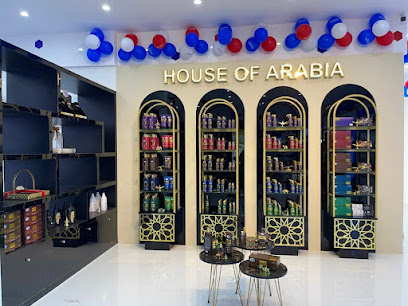
Kent Mall Shopping Centre
Explore the Kent Mall Shopping Centre in Sialkot for a vibrant shopping experience with local and international brands, plus a delightful food court.
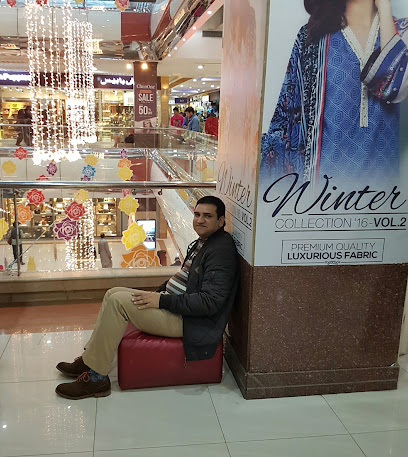
Outfitters,V Mall
Explore the latest fashion trends at Outfitters, V Mall in Sialkot – where style meets quality in every piece.
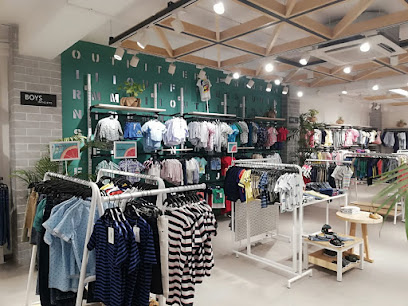
Miniso V-Mall
Discover stylish home goods and unique lifestyle accessories at Miniso V-Mall in Sialkot - a treasure trove for every tourist.
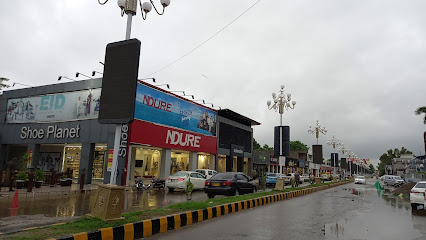
Ethnic
Explore Ethnic, Sialkot's premier clothing store, where tradition meets contemporary fashion in a vibrant shopping experience.
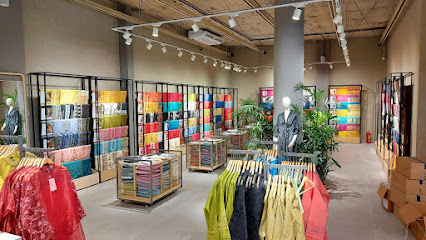
Best Buy super store
Discover the best of local groceries and international products at Best Buy Superstore in Sialkot, Punjab – your one-stop shopping destination.
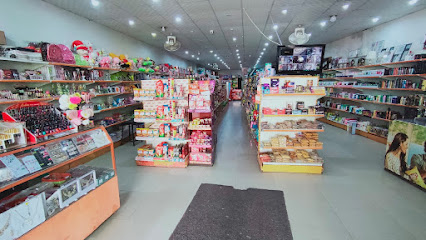
Outfitters Div-8 Sialkot
Discover the latest fashion trends at Outfitters Div-8 in Sialkot, where style meets quality in a vibrant shopping atmosphere.
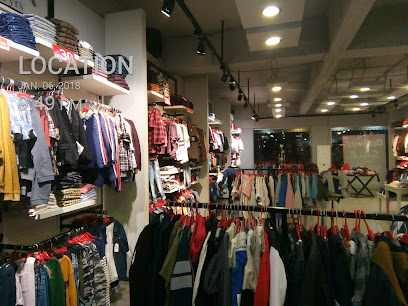
Miniso
Explore Miniso in Sialkot for a unique variety of affordable lifestyle products, perfect for souvenirs and everyday essentials.
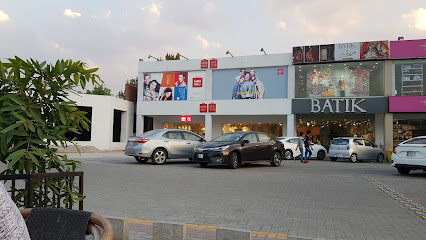
sha POSH
Explore sha POSH in Sialkot for a unique blend of contemporary fashion and traditional craftsmanship, showcasing local designers and vibrant styles.
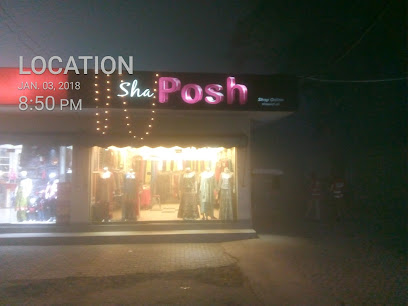
Alnoor Welfare Shop النورویلفیئرشاپ،لاڑی اڈہ
Discover the essence of local culture at Alnoor Welfare Shop in Sialkot, a grocery store offering authentic products and a warm community spirit.
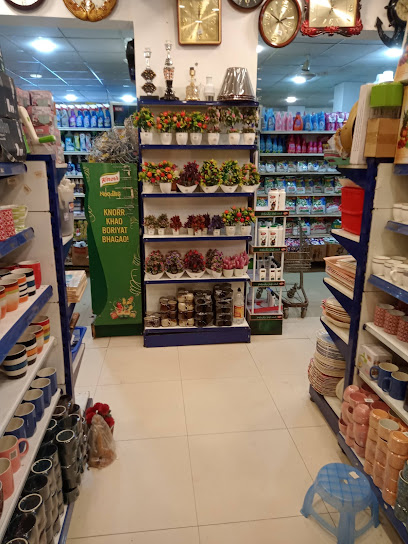
Chase Plus,Sialkot
Discover discount shopping at Chase Plus in Sialkot, where local flavors and everyday essentials meet unbeatable prices.
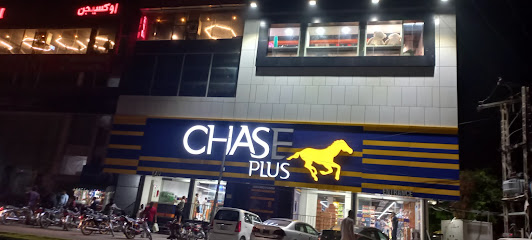
Quirky Store
Explore Sialkot's Quirky Store for unique gifts and local crafts that capture the spirit of Pakistan's rich heritage.
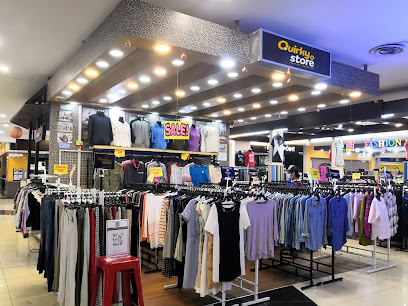
Happy Gift Centre
Explore a vibrant selection of unique gifts and souvenirs at Happy Gift Centre in Sialkot, capturing the spirit of Pakistan.
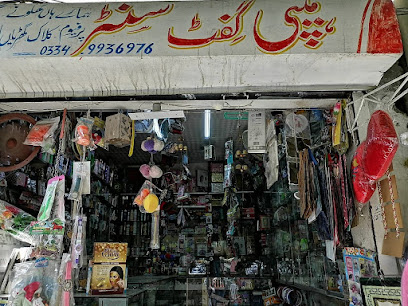
American Shopping Center
Experience Sialkot's vibrant shopping scene at the American Shopping Center, where fashion meets local culture in a delightful atmosphere.

Fashion house sialkot since 1954
Explore the rich fabric of Sialkot at Fashion House, where tradition meets contemporary fashion in a vibrant shopping experience.
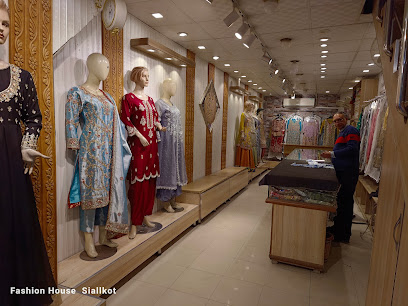
Essential bars & hidden hideouts
Sialkot
Experience the excitement of live sports and vibrant nightlife at Sialkot's popular sports bar, where every game is a celebration.
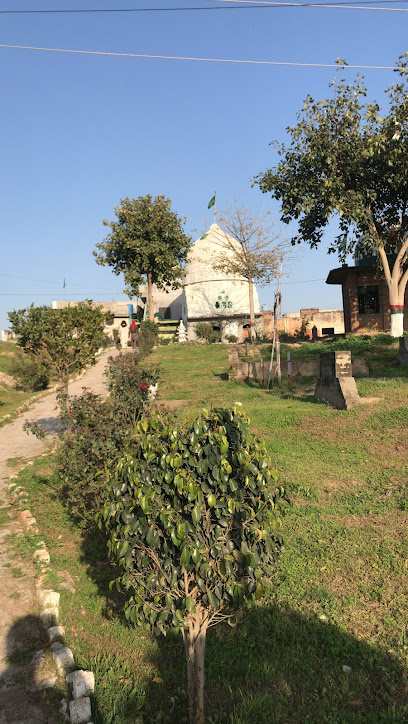
Diamond Cafe
Discover Sialkot's vibrant nightlife at Diamond Cafe, where refreshing drinks and a cozy atmosphere create unforgettable memories.

Azhar Sialkot
Discover the lively atmosphere and diverse drink offerings at Azhar Sialkot, a must-visit bar in the heart of Punjab's vibrant city.

جامع مسجد قادریہ
Discover the tranquility and architectural beauty of جامع مسجد قادریہ, a spiritual haven in Sialkot, Punjab, reflecting rich Islamic heritage and local culture.
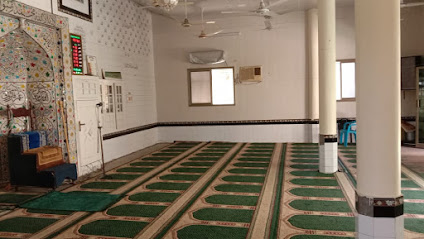
Bar BQ Time
Experience the vibrant nightlife of Sialkot at Bar BQ Time, where local flavors and lively atmosphere create unforgettable moments.
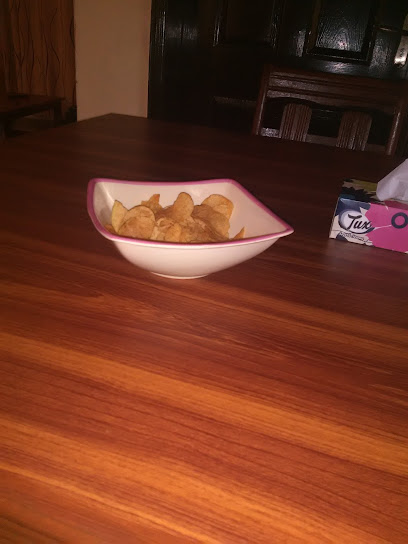
Mad Blend
Discover Sialkot's vibrant nightlife at Mad Blend, a cozy bar serving exquisite drinks and unforgettable experiences for every traveler.
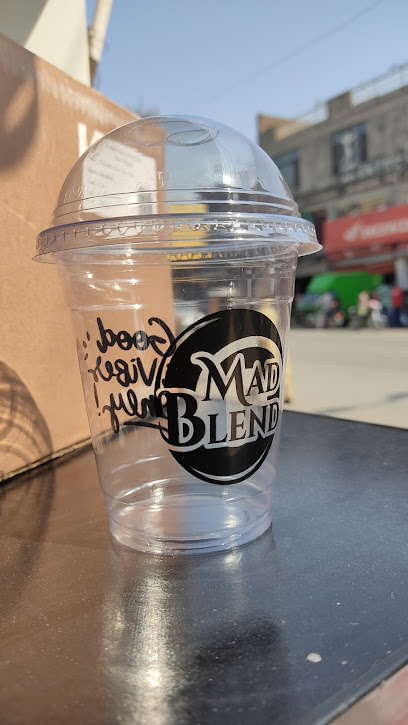
Punjab bar b q
Experience the authentic taste of Punjab at Punjab Bar B Q, where exquisite grilled dishes and a warm atmosphere await every visitor.
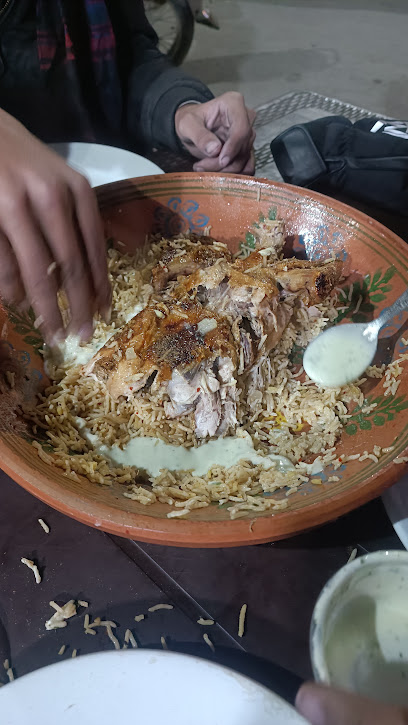
Jamshed hoiesry sialkot
Experience the ultimate sports bar vibe at Jamshed Hoiesry Sialkot, where great food meets thrilling games in a lively atmosphere.
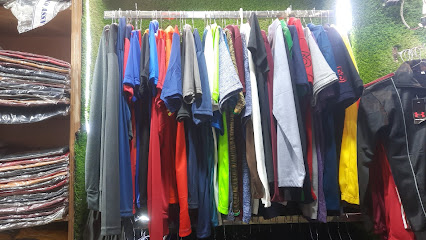
Juices Island
Discover a vibrant bar in Sialkot, Juices Island, offering refreshing juices and a lively atmosphere for tourists and locals alike.
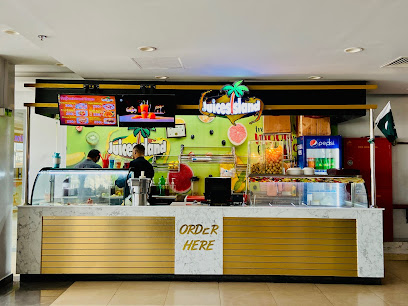
Darbar baba Muhammad din
Discover the local charm at Darbar Baba Muhammad Din, a lively pub in Sialkot offering traditional beverages and a taste of Punjab's vibrant culture.

Devilcafe
Experience the lively atmosphere of Devilcafe, a top bar in Sialkot, where flavor meets fun in a stylish setting.

Unfold
Experience the vibrant nightlife of Sialkot at Unfold, where great drinks and friendly faces await.

fourders jazzer
Experience the vibrant nightlife at Fourders Jazzer, Sialkot's favorite bar for great drinks and live entertainment.

Royal Sports
Experience the excitement of live sports at Royal Sports, Sialkot's premier sports bar, featuring delicious food, drinks, and a vibrant atmosphere.

Local Phrases
-
- Helloہیلو
[hello] - Goodbyeخدا حافظ
[khuda hafiz] - Yesہاں
[haan] - Noنہیں
[nahi] - Please/You're welcomeبراہ کرم
[bara-e-karam] - Thank youشکریہ
[shukriya] - Excuse me/Sorryمعاف کیجیے
[maaf kijiyay] - How are you?آپ کیسے ہیں؟
[aap kaise hain?] - Fine. And you?ٹھیک ہوں۔ آپ؟
[theek hoon. aap?] - Do you speak English?کیا آپ انگریزی بولتے ہیں؟
[kya aap angrezi boltay hain?] - I don't understandمجھے سمجھ نہیں آ رہا
[mujhe samajh nahi aa raha]
- Helloہیلو
-
- I'd like to see the menu, pleaseبراہ کرم مینو دیکھنا چاہتا ہوں
[bara-e-karam menu dekhna chahta hoon] - I don't eat meatمیں گوشت نہیں کھاتا
[main gosht nahi khaata] - Cheers!خوش رہو!
[khush raho] - I would like to pay, pleaseبراہ کرم میں ادا کرنا چاہتا ہوں
[bara-e-karam main ada karna chahta hoon]
- I'd like to see the menu, pleaseبراہ کرم مینو دیکھنا چاہتا ہوں
-
- Help!بچاؤ!
[bachao] - Go away!چلے جاؤ!
[chale jao] - Call the Police!پولیس کو بلاؤ!
[police ko bulao] - Call a doctor!ڈاکٹر کو بلاؤ!
[doctor ko bulao] - I'm lostمیں گم ہوگیا ہوں
[main gum hogaya hoon] - I'm illمجھے بیماری ہے
[mujhe bemari hai]
- Help!بچاؤ!
-
- I'd like to buy...میں خریدنا چاہتا ہوں...
[main khareedna chahta hoon...] - I'm just lookingمیں صرف دیکھ رہا ہوں
[main sirf dekh raha hoon] - How much is it?یہ کتنا ہے؟
[ye kitna hai?] - That's too expensiveیہ بہت مہنگا ہے
[ye bohat mehnga hai] - Can you lower the price?کیا آپ قیمت کم کر سکتے ہیں؟
[kya aap qeemat kam kar sakte hain?]
- I'd like to buy...میں خریدنا چاہتا ہوں...
-
- What time is it?وقت کیا ہوا ہے؟
[waqt kya hua hai?] - It's one o'clockایک بجے ہیں
[aik bajay hain] - Half past (10)سولہ بجے کا وقت ہے
[sola bajay ka waqt hai] - Morningصبح
[subah] - Afternoonدوپہر
[dopehar] - Eveningشام
[shaam] - Yesterdayگزشتہ کل
[guzishta kal] - Todayآج
[aaj] - Tomorrowکل
[kal] - 1ایک
[aik] - 2دو
[do] - 3تین
[teen] - 4چار
[chaar] - 5پانچ
[paanch] - 6چھے
[chhe] - 7سات
[saat] - 8آٹھ
[aath] - 9نو
[no] - 10دس
[das]
- What time is it?وقت کیا ہوا ہے؟
-
- Where's a/the...?کہاں ہے...؟
[kahan hai...?] - What's the address?پتہ کیا ہے؟
[pata kya hai?] - Can you show me (on the map)?کیا آپ مجھے دکھا سکتے ہیں (نقشہ پر)؟
[kya aap mujhe dikhha sakte hain (naqsha par)?] - When's the next (bus)?اگلا (بس) کب ہے؟
[agla (bus) kab hai?] - A ticket (to ....)ایک ٹکٹ (سے ...)
[aik ticket (se ...)]
- Where's a/the...?کہاں ہے...؟
History of Sialkot
-
Sialkot, one of the oldest cities in the region, has a history that dates back thousands of years. It is believed to have been founded by Raja Sul, a contemporary of the legendary Alexander the Great. The city was once known as Sagala and served as a significant center during the reign of the Maurya dynasty and subsequent Indo-Greek rule.
-
In the early centuries AD, Sialkot was ruled by Raja Salivahan, a prominent figure whose reign was marked by prosperity and cultural development. His legacy is immortalized in the famous 'Raja Salivahan's Fort,' which stands as a testament to the city's ancient architectural prowess.
-
The arrival of Islam in the 8th century brought significant changes to Sialkot. The city became a prominent center for Islamic education and culture, attracting scholars and students from across the region. The construction of mosques and madrasas during this period laid the foundation for Sialkot's rich Islamic heritage.
-
During the Mughal era, Sialkot flourished as a center of art, culture, and commerce. The city's strategic location made it an important hub for trade routes connecting the Indian subcontinent with Central Asia. The Mughals invested in the city's infrastructure, including the construction of grand mosques, gardens, and forts that still stand today.
-
In the early 19th century, Sialkot came under the rule of the Sikh Empire led by Maharaja Ranjit Singh. The Sikhs fortified the city and made significant contributions to its architecture and urban planning. The remnants of Sikh-era buildings and fortifications can still be seen in various parts of Sialkot.
-
The British East India Company annexed Sialkot in the mid-19th century, integrating it into the British Raj. The colonial period brought modernization and development, including the establishment of schools, hospitals, and railroads. Sialkot became known for its thriving leather and sports goods industries, which continue to be major economic drivers today.
-
Sialkot played a significant role in the struggle for Pakistan's independence. The city was home to many prominent leaders and activists who contributed to the movement. The partition of India in 1947 led to significant demographic changes, with many Hindu and Sikh residents migrating to India and Muslim refugees settling in Sialkot.
-
Today, Sialkot is a bustling metropolis known for its entrepreneurial spirit and industrial prowess. The city is a global leader in the production of sports goods, surgical instruments, and leather products. Its rich cultural heritage is celebrated through various festivals, traditional music, and cuisine, making Sialkot a vibrant and dynamic destination for travelers.
Sialkot Essentials
-
Sialkot is accessible by air, road, and rail. The Sialkot International Airport (SKT) serves both domestic and international flights, with direct connections to major cities such as Dubai, Sharjah, and Jeddah. By road, Sialkot is well-connected through the national highway network, and you can take a bus or hire a taxi from cities like Lahore (approximately 130 km) or Islamabad (approximately 200 km). The city is also accessible by train, with services operating from various parts of Pakistan to the Sialkot Junction railway station.
-
Within Sialkot, public transportation options include taxis, rickshaws, and local buses. Taxis and rickshaws are readily available and can be hired for short trips around the city. For a more economical option, you can use local buses, which operate on various routes across the city. Ride-hailing services like Uber and Careem are also available. For longer distances or more convenience, consider renting a car.
-
The official currency in Pakistan is the Pakistani Rupee (PKR). Credit and debit cards are accepted in most hotels, restaurants, and larger shops, but it is advisable to carry cash for smaller establishments and markets. ATMs are widely available in Sialkot, and you can easily withdraw cash using your international cards. Currency exchange services are also available at the airport and in the city.
-
Sialkot is generally considered safe for tourists. However, it is advisable to take standard precautions. Avoid walking alone at night, especially in unfamiliar areas, and keep an eye on your belongings in crowded places. While the city does not have specific high-crime areas targeting tourists, it is always best to stay vigilant and aware of your surroundings.
-
In case of emergency, dial 15 for police assistance, 1122 for medical emergencies, and 16 for fire services. It is recommended to have travel insurance that covers medical emergencies. Sialkot has several hospitals and clinics that provide medical care. For minor health issues, there are numerous pharmacies where you can purchase over-the-counter medications.
-
Fashion: Do dress modestly, especially when visiting religious sites. Avoid wearing revealing clothing. Religion: Do respect local customs and traditions. Remove your shoes before entering mosques and cover your head if required. Public Transport: Do be respectful and give up your seat to elderly passengers. Don't eat or drink on public transport. Greetings: Do greet people with a handshake, but be aware that physical contact between men and women may be inappropriate in some contexts. Eating & Drinking: Do try local delicacies and accept food offerings graciously. Don’t eat or drink in public during the fasting hours of Ramadan, as it is considered impolite.
-
To experience Sialkot like a local, visit the traditional bazaars such as Saddar Bazaar and Allama Iqbal Chowk, where you can buy local handicrafts and textiles. Engage with locals, who are often friendly and willing to share stories about the city's history and culture. Don’t miss visiting the Iqbal Manzil, the birthplace of the famous poet Allama Iqbal. For a unique experience, take a stroll along the Sialkot Clock Tower and explore the surrounding area, which is rich in colonial architecture.
Trending Landmark in Sialkot
Nearby Cities to Sialkot
-
Things To Do in Jammu
-
Things To Do in Gujranwala
-
Things To Do in Amritsar
-
Things To Do in Lahore
-
Things To Do in Faisalabad
-
Things To Do in Rawalpindi
-
Things To Do in Murree
-
Things To Do in Islamabad
-
Things To Do in Abbottabad
-
Things To Do in Manali
-
Things To Do in Kaghan
-
Things To Do in Naran
-
Things To Do in Shimla
-
Things To Do in Peshawar
-
Things To Do in Skardu










